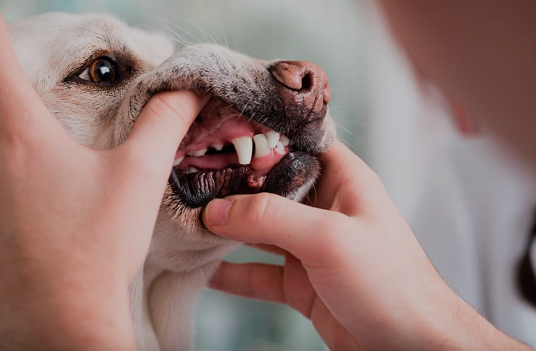Taking care of your pet’s dental health is as essential as ensuring they have nutritious food, exercise, and regular veterinary checkups. Poor dental hygiene can lead to pain, infections, and serious health issues that could impact your pet’s overall quality of life. Here, we break down why pet dental care is so important and how to do it right to keep your furry friends healthy and happy.
Why Pet Dental Care Matters
1. Prevents Tooth Decay and Gum Disease Just like humans, pets can suffer from plaque buildup, which, if left untreated, can harden into tartar. This can lead to tooth decay, gum inflammation (gingivitis), and eventually periodontal disease. Gum disease is painful and can make eating difficult for your pet.
2. Reduces Risk of Serious Health Issues Oral health issues don’t stop at the mouth. Bacteria from gum disease can enter the bloodstream and affect vital organs, such as the heart, liver, and kidneys. By taking care of your pet’s teeth, you are also protecting their overall health.
3. Freshens Breath While dog breath isn’t meant to smell minty-fresh, persistently bad breath can be a sign of underlying dental problems. Regular cleaning helps maintain a neutral and healthy breath for your pets.
Signs of Dental Problems in Pets
It’s important to recognize the early warning signs that your pet may have dental issues:
- Bad breath
- Red or bleeding gums
- Difficulty eating or chewing
- Yellow or brown tartar buildup on teeth
- Drooling more than usual
- Pawing at the mouth
How to Take Care of Your Pet’s Dental Health
1. Regular Brushing Brushing your pet’s teeth is one of the best ways to prevent plaque buildup. Use a toothbrush designed for pets and pet-safe toothpaste (never use human toothpaste as it can be toxic to pets). Start slowly and reward your pet with treats and praise to make the experience positive.
Tips for Brushing:
- Start brushing when your pet is young so they become used to the process.
- Brush gently in circular motions, focusing on the gum line.
- Aim to brush at least a few times a week, or daily if possible.
2. Dental Chews and Toys Dental chews are designed to help reduce plaque and tartar buildup while giving your pet something enjoyable to chew on. Look for vet-approved chews that promote dental health. There are also specially designed toys that help clean teeth as your pet gnaws on them.
3. Regular Vet Checkups Schedule regular veterinary checkups that include a dental exam. Your vet can spot potential problems early and may recommend professional cleanings if needed. These cleanings, done under anesthesia, ensure a thorough removal of tartar and bacteria from the teeth and gums.
4. Diet and Water Additives Feeding your pet high-quality food can also play a role in their dental health. Some specially formulated dry foods are designed to help clean teeth as your pet chews. Additionally, there are water additives that can be added to your pet’s water bowl to help reduce plaque and freshen breath.
Common Mistakes to Avoid
1. Ignoring Dental Health Until a Problem Arises Prevention is better than treatment. Don’t wait until your pet shows signs of dental disease to start taking action. Regular maintenance is key to avoiding expensive and invasive dental procedures.
2. Using Human Products Never use human dental products for your pets. Ingredients such as fluoride or xylitol found in human toothpaste can be harmful and toxic to animals.
3. Skipping Professional Cleanings Even with regular brushing and dental chews, pets may still need professional cleanings. These cleanings are essential for preventing issues that home care alone cannot address.
Final Thoughts
Maintaining your pet’s dental health is an integral part of their overall well-being. Regular brushing, dental chews, vet checkups, and a proper diet can keep your pet’s teeth and gums healthy. By taking proactive steps, you can prevent painful dental diseases and ensure that your furry friends enjoy a long, healthy life with a bright, happy smile.
Start small and stay consistent – your pet’s teeth will thank you!







